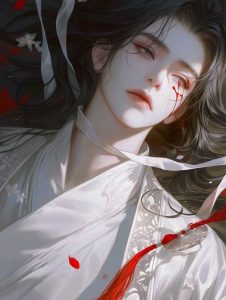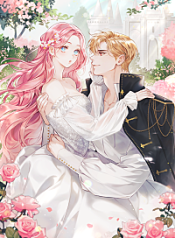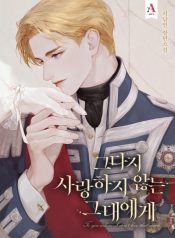His candor and ever-changing emotional expressions were qualities she lacked, making them all the more captivating. Moreover, his manners and tastes carried a refined elegance, ensuring that time spent together was always pleasant and free of discord. Being with him felt as though their hearts meshed like perfectly aligned cogs in a wheel, turning in harmony.
No one had ever connected with her so effortlessly, nor matched her heart so well, except for one man who had briefly appeared twelve years ago before vanishing.
As Laura savored her growing friendship with Mr. Dalton, autumn arrived in Yorkshire. The midday air carried the crisp breath of fall, and the green leaves of the trees began to turn patchy shades of yellow and red, like fabric poorly dyed. Servants donned woolen sweaters and flannel undergarments beneath their uniforms, looking slightly bulkier, while the distance between Mrs. Fairfax’s favorite rocking chair and the fireplace shrank by half a foot.
Around this time, Laura also grew close to the vicar and his wife.
It was entirely due to an unexpected downpour. One autumn afternoon, when Laura and Olivia attended a teatime at the vicarage, the sky—clear and bright that morning—suddenly darkened with rainclouds, unleashing a torrential storm accompanied by thunder and lightning.
As the teatime concluded, the gathered villagers borrowed umbrellas from Mrs. Starr and departed, but Laura and Olivia had no choice but to remain. Between the vicarage and Dunville Park lay numerous fields and streams, the latter prone to overflowing with even a little rain. The fields, poorly maintained, easily turned into sticky mires that could trap carriage wheels. Setting out rashly would surely leave them stranded halfway.
After hours of waiting for the rain to cease, Mrs. Starr, unable to bear it any longer, suggested that the two spend the night at the vicarage. There were guest rooms available, preparing extra meals was no trouble, and her husband, Reverend Starr, would consider it an honor to host the ladies of Dunville Park. They gratefully accepted the kindness.
That evening left Laura with fond memories. The Starrs’ hospitality was impeccable, and neither the meal nor the guest room could be faulted. Yet what warmed Laura’s heart most was the couple’s evident devotion.
This young couple, as evidenced by the notorious French-style kissing incident that had stirred the small village, were deeply in love. The lively Mrs. Starr gazed at her husband with rapturous expressions no matter what he said, while the reserved Reverend Starr, striving to maintain a dignified demeanor befitting his title in front of guests, struggled to suppress smiles whenever his wife displayed her affection.
Laura soon learned that the two had grown up as childhood playmates in the same village, becoming a couple after a nine-year engagement. After such a long journey, they had become a pair of larks, living happily in the small nest of the vicarage, rubbing beaks and reveling in the joy of being lovers and family, raising their adorable son, the fruit of their love.
The next day, the skies cleared, and the sun shone brightly, hardening the roads. Laura, her heart warmed by the beautiful couple, returned to Dunville Park with Olivia.
Some time later, an invitation arrived from the vicarage, requesting their presence at a weekday evening dinner. Laura found herself in a quandary. She dearly wished to attend, but her circumstances made it difficult to move freely in the evenings. However, when Olivia learned of the invitation, she rushed to inform her mother. Soon, Mrs. Fairfax summoned Laura, sat her down, and spoke gently.
“Reverend Oliver Starr has been like a son to Reverend Jenfield, serving under him as an assistant vicar for years. My health prevents me from visiting often, but if you would keep company with the Starrs, it would be a great kindness to me.”
With permission granted, Laura, grateful for Olivia and Mrs. Fairfax’s consideration, boarded the carriage. Unbeknownst to her, the mother and daughter left behind whispered about how many times Ian typically visited the vicarage dinners.
Surprisingly, Laura was the only guest invited to the dinner. As she tried to conceal her puzzlement, Mrs. Starr whispered the reason.
“Please understand, Miss. My husband gets so nervous when there are more than four people at the dinner table—he turns into a paper doll. Yet he can preach for hours before a congregation of over a hundred during service. Perhaps once he grows more comfortable with you, we can invite more friends.”
Mrs. Starr seemed genuinely apologetic for not inviting more guests to entertain Laura. But Laura not only understood—she was delighted. Large, bustling social gatherings were not to her taste.
At the intimate dinner, Laura came to understand the couple better. Though shy, Reverend Starr possessed undeniable intelligence and determination. Born the youngest son of a poor farming family, he had relied solely on scholarships to pursue his studies, ultimately graduating top of his class at Cambridge and becoming a theologian.
Mrs. Starr, with a touch of self-deprecation, lamented that despite seven years at a girls’ school, the only skill she had mastered was embroidering muslin. Yet to Laura, Mrs. Starr was no less resolute than her husband.
The daughter of a wealthy textile merchant, Mrs. Starr’s lively nature had made her popular with gentlemen. Yet she had endured nine years of her parents’ objections to wait for her poor theologian, choosing to become his wife. Their happiness would not have been possible without her steadfast faith.
Laura grew to respect and cherish them both even more, and they felt the same toward her. Invitations to dinner continued thereafter.
Whenever Laura visited, Mrs. Starr focused on finding topics that would engage everyone. Talk of village gossip caused Laura to fall silent, chatter about their son Harry quieted the reverend, and discussions of theology or literature left Mrs. Starr mute. After much thought, she discovered a subject that delighted them all: Mr. Dalton.
Mr. Dalton was a close friend to the Starrs as well. Reverend Starr and Mr. Dalton were Cambridge alumni, a year apart, who had grown close while sharing a dormitory at King’s College.
“Darling, darling, darling,” Mrs. Starr urged, “tell her about Mr. Dalton’s Cambridge days. She’ll find it fascinating.”
With a soft chuckle, he began.
“I became friends with Mr. Dalton during my first year at Cambridge. But I knew of him from the moment I arrived. Truth be told, no one at Cambridge was unaware of him. His striking presence drew attention from the entrance ceremony. From his first year, love letters from ladies arrived at his dormitory daily.”
“Ladies?” Laura asked, surprised.
Mrs. Starr elaborated. “Every year, Cambridge holds a ball to welcome new students. Mr. Dalton attended just once, out of courtesy, and didn’t stay for ten minutes. Yet every lady in the region fell for him. But he sent back every letter unopened, saying he couldn’t trust women who professed love after a single glance.”
It was so like Mr. Dalton that Laura could only laugh.
Encouraged by his wife, the reverend continued.
“But the real reason he became famous at Cambridge was something else. Right after his admission, the rowing team’s coach visited our college, demanding to know why he hadn’t submitted an application. Mr. Dalton had been the captain of Eton’s rowing team for years.”
Laura was astonished. “Mr. Dalton rowed?”
“It was his father’s wish, he said. During his time as captain, Eton’s rowing team dominated national competitions. His stamina was worth three men, and his leadership and tactics were remarkable. Cambridge had been losing to Oxford in the Oxbridge rowing match for years, and they desperately needed him. But despite the coach’s pleas and threats, he didn’t budge.”
“Why did he quit rowing?”
“He couldn’t balance studies, sports, and personal time. He had already promised his father he’d do as he pleased after entering university. When the coach’s pleas failed, even the chancellor stepped in, urging him to join for the school’s honor, offering academic leniency and scholarships. But Mr. Dalton responded…”
Reverend Starr, an old friend, mimicked Mr. Dalton’s characteristic haughty expression and icy tone perfectly.
“‘I enrolled to study, not to uphold the school’s honor. Beating Oxford means nothing to me, and I refuse to waste a single minute on meaningless pursuits. And Chancellor, if you believe a school’s honor hinges on who can row faster, I suggest you return to school yourself.’”
Laura marveled at Mr. Dalton’s unwavering character.
“In the end, everyone gave up, and Mr. Dalton was free. For the next four years, Cambridge lost to Oxford in rowing, and he faced glares from the entire student body, openly criticized.”
Reverend Starr smiled.
“But he carried on, unfazed, living his university life as he pleased. To taunt the coach who had pestered me, he’d read or sketch by the lake where the rowing team trained. He never lost the top spot at Cambridge and graduated first in his class.”
A brief silence followed. After about ten seconds, all three burst into laughter they’d been holding back. Those who knew Ian Dalton instinctively shared the same thought.
This man is truly consistent.
Male lead fell into her trap — and shattered when she walked away
This is also on my reread list!
This one is a slow burn, but when it burns, it burns hard.
Definitely worth a read, y’all!

The story follows a thousand-year-old seductive spirit who, on a bet, sets out to charm the male lead—a once-promising but unfortunate cultivator.
But just when she succeeds in making him fall for her, she heartlessly leaves, driving him to madness.
Determined to find her at all costs, he captures her, keeping her by his side no matter what, even if she hates him.
I love this kind of trope—I enjoy watching the male lead suffer in agony.
The ending drags a bit with unnecessary filler, but that’s fine.
As long as I enjoy the beginning, I’m good.
Intro
As an enchantress, Su Heng possesses captivating eyes and charming beauty, easily manipulating the joys and sorrows of living beings at her fingertips.
But to enchant a god, making him taste the bitterness of love’s separation, long-lasting resentment, unattainable desires, and inability to let go…
Do you dare?
Su Heng assists a divine lord in his cultivation, aiming to make him experience all the sufferings of love, so that he can attain the Great Dao.
Only after being chased down from the heavens by the divine lord, confined and completely possessed by him, does she realize how successful she has been.
The once gentle and polite youth has transformed into someone she no longer recognizes.
[Touch the gear icon in the bottom right corner of the screen to move to the next chapter if you want.]




